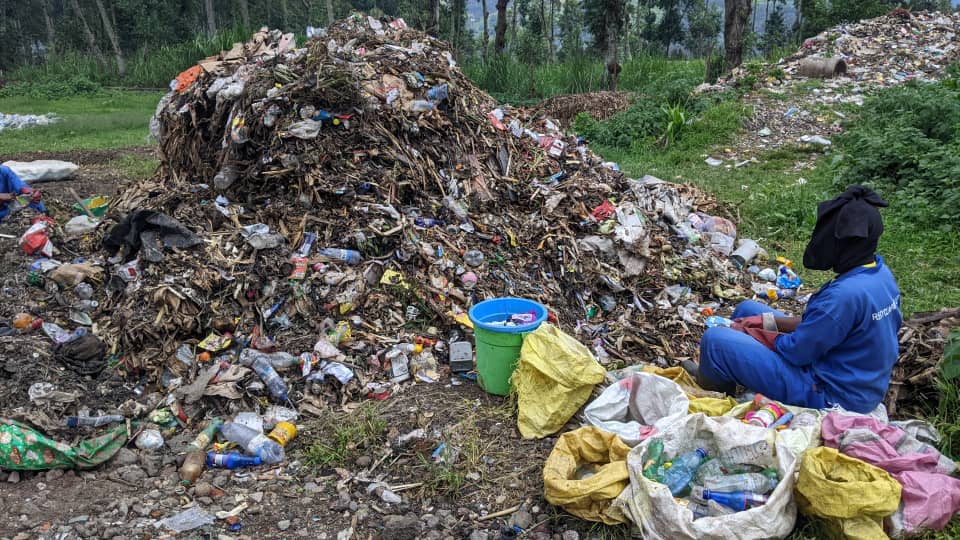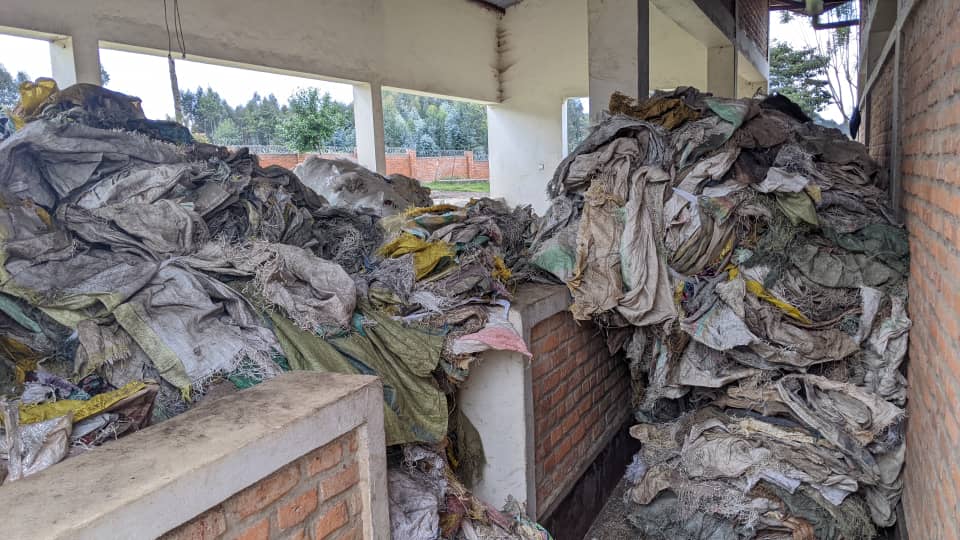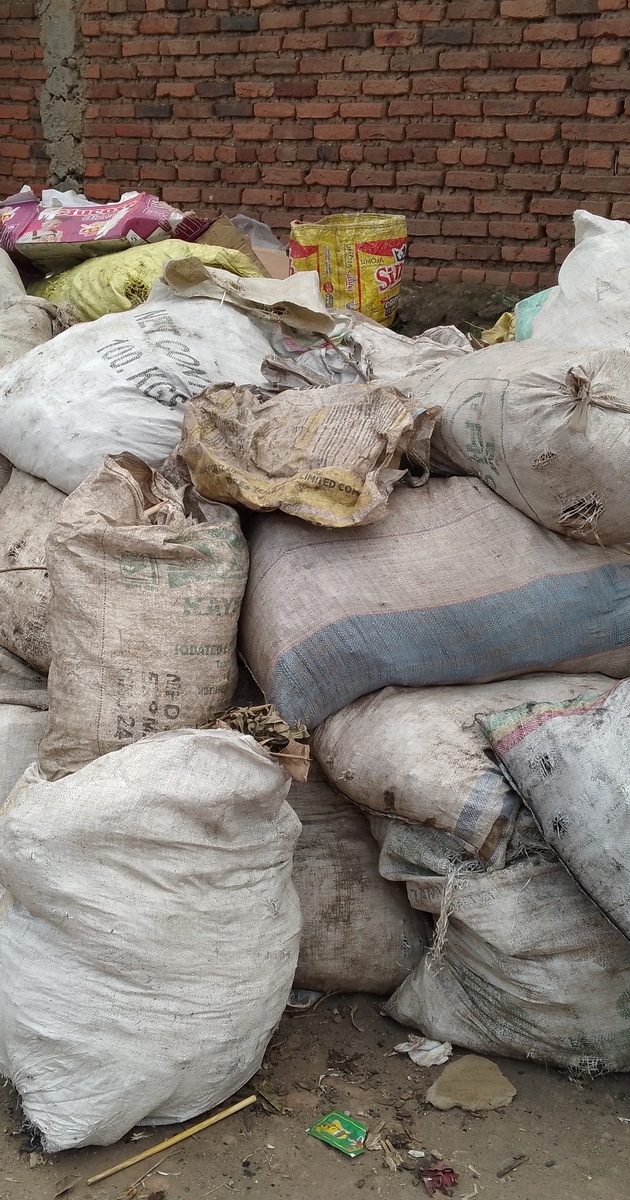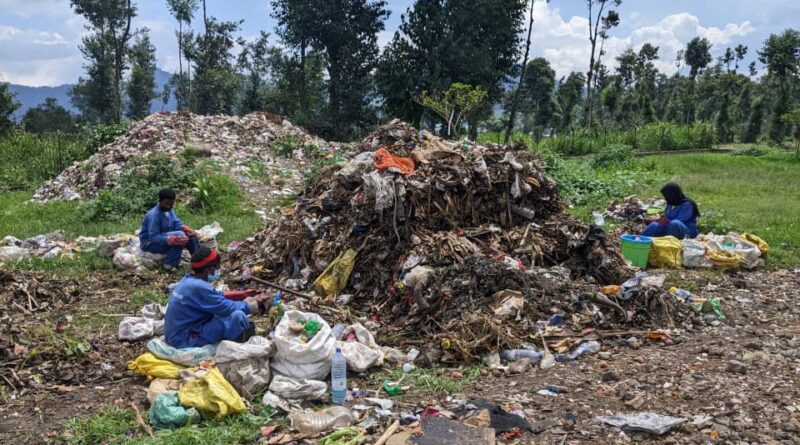Old Clothes discarded in farms harbor chemicals that harm the environment
Research reveals that waste management remains a global issue, with discarded clothes containing chemicals that harm the environment and agriculture.
Once these clothes are dumped in soil, the land becomes infertile, and water infiltration becomes nearly impossible in areas covered with what some refer to as “rags.”
The challenge lies in the lack of effective waste sorting practices, particularly in households, where organic and inorganic waste is often mixed. This hampers efforts to manage waste effectively.
Fred SABITI, a National Advisor on Mainstreaming Environmental Policy under the UNDP Development Program, told Greenafrica.rw that waste management, especially for old clothes, remains a significant challenge. However, he noted that the government is working on strategies to address the issue.

“Many people still mix degradable and non-degradable waste. However, the government is exploring different solutions in waste management. I believe the Rwanda Environment Management Authority (REMA) has initiated discussions with various stakeholders to find sustainable ways to address this. Given the volume of old clothes, finding environmentally friendly disposal or recycling methods is critical,” Sabiti said.
The government is expected to roll out awareness campaigns once a comprehensive waste management policy is finalized.
Sabiti further highlighted that old clothes discarded in soil do not decompose easily, preventing water from penetrating the ground.
“This is a serious issue. Farmers and construction workers sometimes come across old clothing buried in the soil, which remains intact even after many years. These materials block water infiltration and can render soil infertile, similar to the impact of plastics,” he added.
Beyond being dumped in farms, environmental experts warn that discarding old clothes in water bodies has devastating effects on humans, plants, and aquatic life.
Globally and in Rwanda, approximately 92 million tons of old clothes are discarded annually, but only 30% are recycled or repurposed. The remaining 70% ends up polluting soil and water, presenting a severe environmental challenge.

Dr.Abias Maniragaba, an environmental expert, explained that fibers from old clothes can remain in soil for years, harming plants, while chemicals from the fabrics pollute water, posing health risks to water users.
“Depending on the material, rainwater can dissolve the chemicals in these clothes, contaminating groundwater. When people consume this water, it can have serious health consequences. Additionally, agriculture suffers significantly in areas where these clothes are dumped,” he said.
Dr. Maniragaba proposed incentivizing people to collect and deposit old clothes at designated centers to reduce environmental harm.
“If we established collection points or partnerships with companies like UTEXRWA to recycle these materials into new products, it would benefit not only the government but also individuals. Such initiatives could transform waste into business opportunities rather than environmental hazards,” he added.
Globally, only 20% of discarded clothes are collected for recycling, and just 30% of those are repurposed into new products.

In Rwanda, 1.5 tons of waste is generated annually, but only 4% of it, including old clothes, is recycled.
Research shows that old clothes can take between 30 to 200 years to decompose, depending on their material. Natural fibers like cotton decompose faster than synthetic materials like polyester, which can remain intact for centuries.
Rwanda’s laws on environmental protection address this issue:
Legal Framework:
1. Law Nº 48/2018 of 13/08/2018 Governing the Environment:
Article 23: Prohibits activities that harm the environment, including improper waste disposal in water or soil.
Article 31: Bans the production, use, and improper disposal of single-use plastics.
2. Ministerial Guidelines on Waste Management:
Dumping waste, including old clothes, into water bodies or soil is a punishable offense under specific regulations.
Penalties:
Improper disposal of plastics and non-biodegradable waste is punishable by fines or legal sanctions, depending on the severity of environmental damage caused.
Dumping old clothes or plastics into water bodies or soil in Rwanda is illegal and punishable by law, aimed at protecting the environment and promoting sustainable waste management practices.


